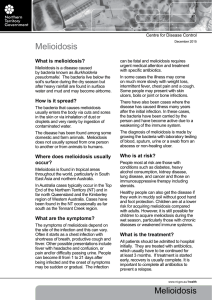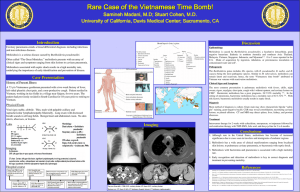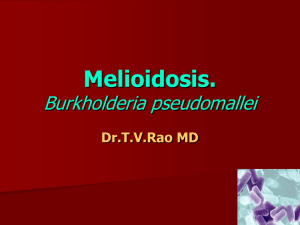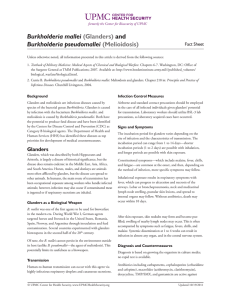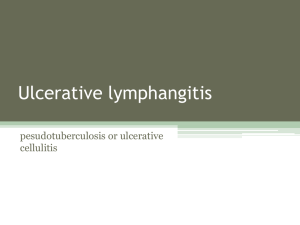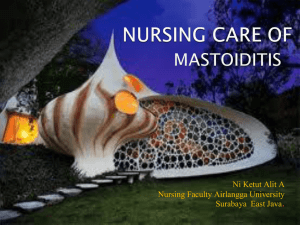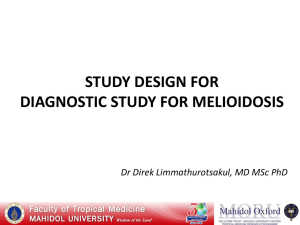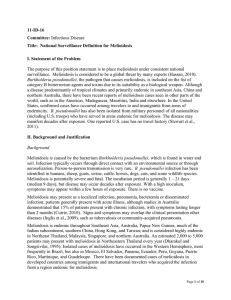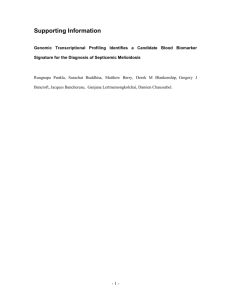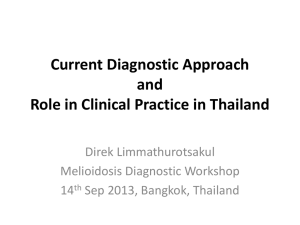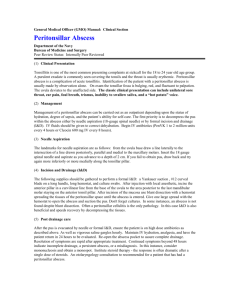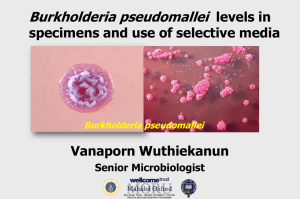Melioidosis case report of a pediatric patient in Cambodia
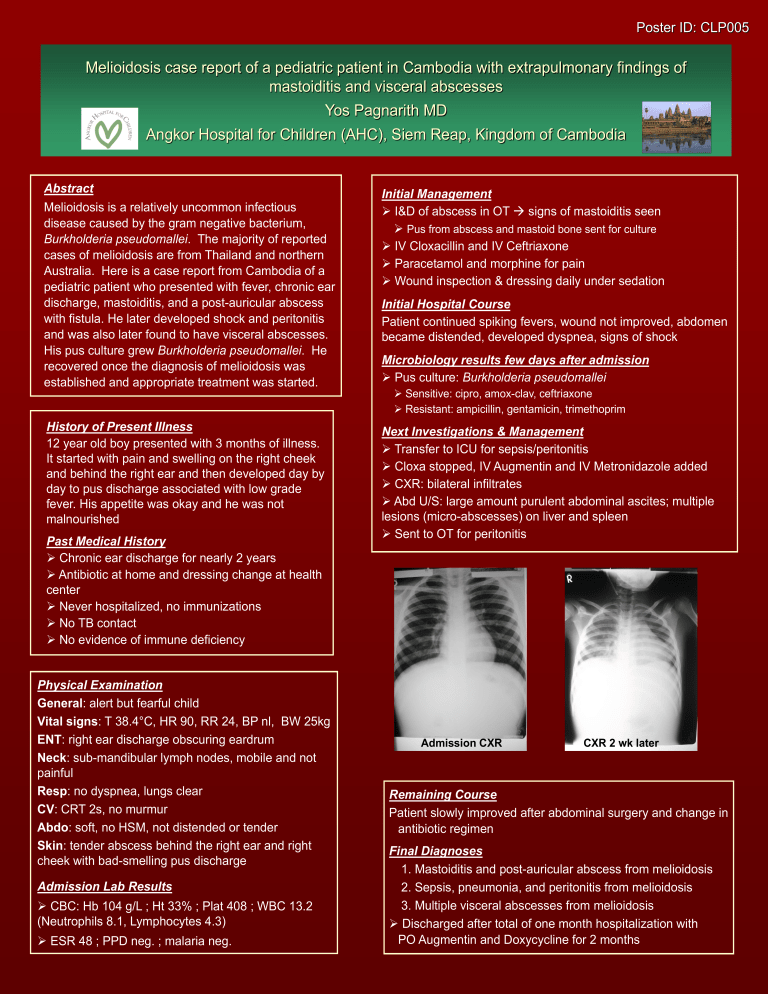
Poster ID: CLP005
Melioidosis case report of a pediatric patient in Cambodia with extrapulmonary findings of mastoiditis and visceral abscesses
Yos Pagnarith MD
Angkor Hospital for Children (AHC), Siem Reap, Kingdom of Cambodia
Abstract
Melioidosis is a relatively uncommon infectious disease caused by the gram negative bacterium,
Burkholderia pseudomallei . The majority of reported cases of melioidosis are from Thailand and northern
Australia. Here is a case report from Cambodia of a pediatric patient who presented with fever, chronic ear discharge, mastoiditis, and a post-auricular abscess with fistula. He later developed shock and peritonitis and was also later found to have visceral abscesses.
His pus culture grew Burkholderia pseudomallei . He recovered once the diagnosis of melioidosis was established and appropriate treatment was started.
History of Present Illness
12 year old boy presented with 3 months of illness.
It started with pain and swelling on the right cheek and behind the right ear and then developed day by day to pus discharge associated with low grade fever. His appetite was okay and he was not malnourished
Past Medical History
Chronic ear discharge for nearly 2 years
Antibiotic at home and dressing change at health center
Never hospitalized, no immunizations
No TB contact
No evidence of immune deficiency
Physical Examination
General
: alert but fearful child
Vital signs
: T 38.4
°C, HR 90, RR 24, BP nl, BW 25kg
ENT
: right ear discharge obscuring eardrum
Neck
: sub-mandibular lymph nodes, mobile and not painful
Resp
: no dyspnea, lungs clear
CV
: CRT 2s, no murmur
Abdo
: soft, no HSM, not distended or tender
Skin
: tender abscess behind the right ear and right cheek with bad-smelling pus discharge
Admission Lab Results
CBC: Hb 104 g/L ; Ht 33% ; Plat 408 ; WBC 13.2
(Neutrophils 8.1, Lymphocytes 4.3)
ESR 48 ; PPD neg. ; malaria neg.
Initial Management
I&D of abscess in OT signs of mastoiditis seen
Pus from abscess and mastoid bone sent for culture
IV Cloxacillin and IV Ceftriaxone
Paracetamol and morphine for pain
Wound inspection & dressing daily under sedation
Initial Hospital Course
Patient continued spiking fevers, wound not improved, abdomen became distended, developed dyspnea, signs of shock
Microbiology results few days after admission
Pus culture: Burkholderia pseudomallei
Sensitive: cipro, amox-clav, ceftriaxone
Resistant: ampicillin, gentamicin, trimethoprim
Next Investigations & Management
Transfer to ICU for sepsis/peritonitis
Cloxa stopped, IV Augmentin and IV Metronidazole added
CXR: bilateral infiltrates
Abd U/S: large amount purulent abdominal ascites; multiple lesions (micro-abscesses) on liver and spleen
Sent to OT for peritonitis
Admission CXR CXR 2 wk later
Remaining Course
Patient slowly improved after abdominal surgery and change in antibiotic regimen
Final Diagnoses
1. Mastoiditis and post-auricular abscess from melioidosis
2. Sepsis, pneumonia, and peritonitis from melioidosis
3. Multiple visceral abscesses from melioidosis
Discharged after total of one month hospitalization with
PO Augmentin and Doxycycline for 2 months
